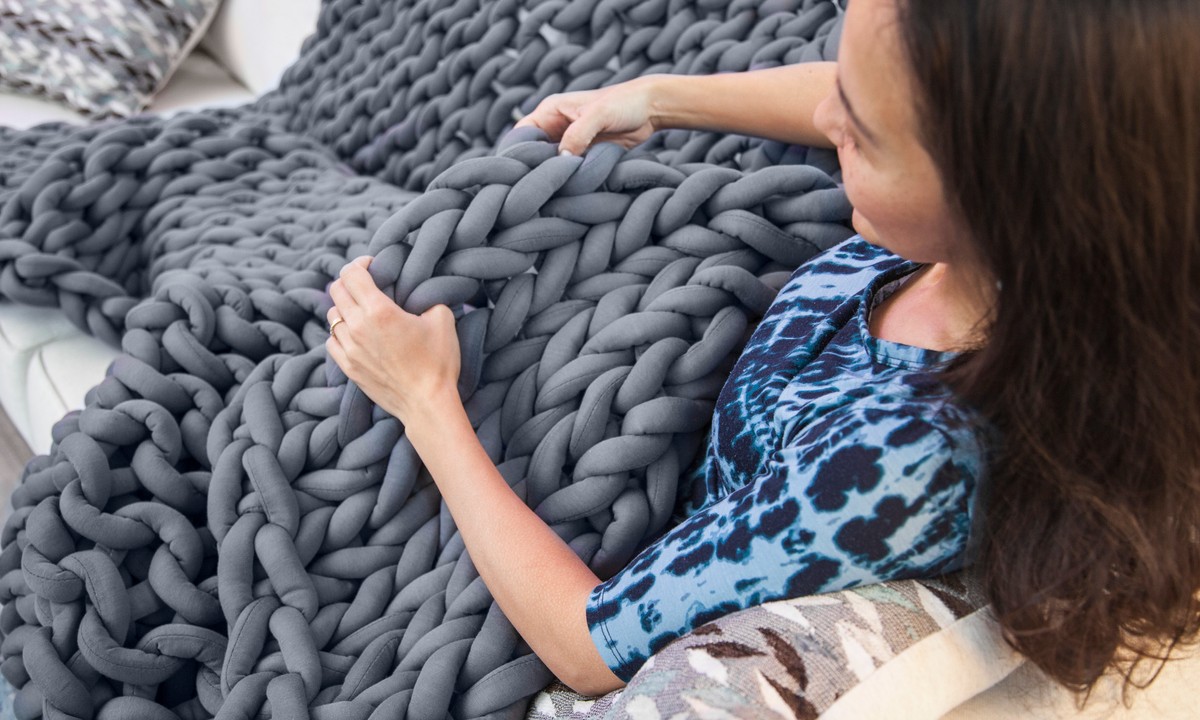
This content was originally published on OldHouseOnline.com and has been republished here as part of a merger between our two businesses. All copy is presented here as it originally appeared there.
For many people, weighted blankets have become a permanent part of their healthy sleep routine. Particularly because they help people with anxiety, insomnia, autism, and depression, among other conditions. It’s not carved in stone, but research suggests that it may be a source of comfort for people suffering from mental health problems.
Let’s explore the benefits and risks associated with incorporating weighted blankets into your stress relief routine.
What Is a Weighted Blanket?
Weighted blankets are heavier than regular blankets – normally ranging between 5 and 30 pounds. There’s a therapeutic technique called pressure therapy and the pressure stimulation by a weighted blanket mimics that, releasing a mood-boosting hormone called serotonin. It also reduces cortisol (stress hormone) and improves levels of melatonin.
Weighted blankets are available in two styles: duvet and knitted. The duvet ones have plastic or glass beads or similar heavy fills to increase the weight. The knitted ones are woven using dense yarn.
Benefits of a Weighted Blanket
1. Comfort and security
The primary purpose of a weighted blanket is to make the affected person feel snug and cozy. It also helps promote a sense of security.
2. Calms the nervous system
A person may crave the comfort of a soft bed when anxious. A weighted blanket, in such a situation, can help improve comfort and reduce anxiety as a result. When combined with relaxing techniques such as deep breathing, it has a calming effect on the nervous system that could otherwise just as easily turn into panic.
3. Relives the perception of pain
A weighted blanket models the experience of hugging or being held tightly. If somebody is going through emotional pain, a weighted blanket on top of them can momentarily help them feel at ease.
Can Everybody Benefit From a Weighted Blanket?
The benefits of a weighted blanket aren’t just limited to people with mental health problems. Since they help provide a sense of comfort, a lot of people just use them to promote healthy sleep. They’re usually the same folk who find it comfortable and prefer to sleep with a lightweight quilt on, even in the summer. But while many will find a weighted blanket comforting, some people will just outright reject the idea of it.
Are There Any Risks Involved?
People with asthma and those who are claustrophobic can get triggered by the pressure of a weighted blanket. People with obstructive sleep apnea may also find weighted blankets difficult to keep up with. If you’re dealing with a patient who has one or more of these conditions, always consult them first before you try comforting them with a weighted blanket.
Weighted Blanket and Sleep: What’s the Correlation?
According to a study in 2020, 28 participants who had trouble staying and falling asleep were prescribed the use of a weighted blanket. After six weeks of use, they reported significant improvement in their sleep quality and being able to sleep quickly.
Another study in 2021 about adults and children with autism and ADHD concluded that 37 adults and 48 children who participated in the study were able to relax during the day after using weighted blankets for sleep.
Since using a weighted blanket improves the production of melatonin in our body (the hormone that improves your sleep), it goes without saying that a weighted blanket can, in fact, help us sleep better.






